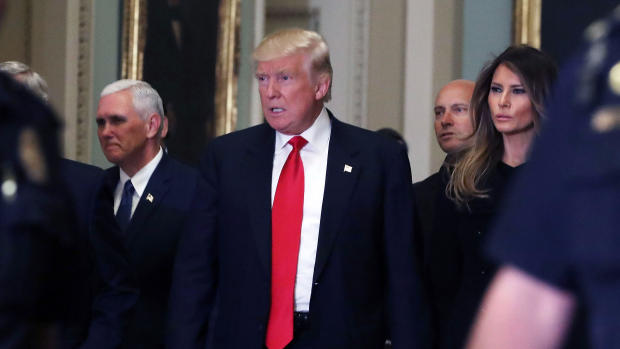Why Trump probably won't be able to replace Jeff Sessions
President Trump and Attorney General Jeff Sessions seem to be in a bad relationship lately, right?
Oh yes. Mr. Trump has been quite public with his criticisms over the past few weeks. He has been upset with Sessions for recusing himself from the Russia investigation and the subsequent naming of a special counsel to take over the CIA probe. At the same time, the Republican-controlled Senate has made it quite clear that they want Sessions to stay, with Judiciary Committee Chairman Chuck Grassley saying there's no way they'll confirm a replacement.
Why is the Senate so against Sessions' removal?
A couple of reasons. The first is that Sessions was popular with his colleagues in the Senate before he left for the Trump administration. He's well-liked, even among those who disagree with him.
The second and more important reason is that firing Sessions would likely be a prelude to the firing of Special Counsel Robert Mueller, the former FBI director tasked with investigating Russian interference in the 2016 election.
Because Sessions recused himself from the investigation, it means he can't fire Mueller, but a new attorney general could. The conventional wisdom in Washington supposes that this is the real reason Mr. Trump seems so anxious to get Sessions out of the way.
If Mr. Trump replaces Sessions with someone who fires Mueller, it could provoke a constitutional crisis, which the Senate appears anxious to avoid. So, for the moment at least, it looks like they're more than willing to stand up to Mr. Trump.
So what happens the president just fires Sessions?
He'd need to get a new attorney general, one Grassley says the Senate won't confirm. That means that the man who appointed Mueller in the first place, Deputy Attorney General Rod Rosenstein, would become acting attorney general. This doesn't really solve any of Mr. Trump's problems, however, as it is essentially impossible to imagine Rosenstein ever fires Mueller.
Is there any way the president could appoint someone else?
Here's where it gets a little tricky. Presidents typically can and do make recess appointment when Congress is not in session. This is a way for the executive branch to fill vacancies, such as those created by firings, without consulting with the legislature.
The Senate will be in recess in August, which in theory means that Mr. Trump could fire Sessions and appoint someone new while all the senators are out of town. This recess appointment would last only until the new congressional term begins in January, at which point the new attorney general to be confirmed. But that's long enough for the Sessions replacement to fire Mueller.
The thing is, though, Congress knows a way to block such appointments.
And how do they do that?
By holding what are called pro forma sessions during the recess. Basically, it works like this: The senators all still leave town, but every three days or so someone shows up to say that Congress is still in session. So even though Congress isn't really doing anything, it is legally not in recess, meaning the president can't make a recess appointment.
Pro forma sessions are the reason there have been no recess appointments since 2012. They don't need to be announced much in advance, as all the Senate leadership needs to do is schedule the sessions.
A pro forma session usually lasts only a matter of minutes – they just gavel in and gavel out, once they figure out who's in Washington to do the honors. They typically happen every three days of the recess because the Constitution states that neither house of Congress can go on break for more than three days without the consent of the other.
Is that what they'll do this time?
Presumably, yes, as the Senate has stayed in pro forma session in the most recent recesses, such as Memorial Day and the 4th of July. That means that Mr. Trump won't get to make his recess appointment, and that he's stuck with Sessions for the foreseeable future. It also means that recess appointments are well on their way to becoming relics.




